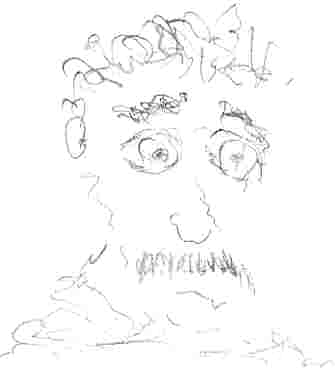Notebook
Now, his approximately 10,000 recordings are a defiant reminder of what the world has lost in terms of practical knowledge, culture, diversity, personality, and spontaneity. Less and less do we make our own music, our own art. Instead, we rely on others for entertainment. Across the land and around the world, we watch and listen to the same things. Imitation is the rule. Lomax saw this coming and warned against it. Jack Kerouac, the restless author of On the Road, was appalled by the blue light flashing in every home in America, and railed against its paralyzing effect.
Back then, when a man hopped a freight, he knew he would find something different in every town changes in music, accent, mannerism, and style. Conversation with strangers arose naturally, and was considered par for the course. Going back a little further, in his book Specimen Days, Walt Whitman mentions time and again striking up conversations with people hed meet. Ever curious, hed ask them questions, and a pleasant exchange of real, homespun information would begin current events, personal experiences, weather, crops, geography.
Its impossible, of course, to go back. But it is possible to pay attention, to recognize what is happening, and to act accordingly. Its possible to live life more authentically and directly, to meet people less critically and more gladly and openly. True folk art springs from such a life. So do inspiring accomplishments like those of Alan Lomax.
Its also possible to encourage children to find, believe, and take pride in their own talents, and to not frighten or coerce them into pursuing contradictory occupations that will keep them sick, miserable, and angry all their lives.
But its difficult to do any of these things with the TV on, or with the car windows rolled up and the radio blasting, or with constant cell phone interruptions. The human mind needs a certain measure of peace and quiet. It needs space in which to soar.

Also by William Michaelian
POETRY
Winter Poems
ISBN: 978-0-9796599-0-4
52 pages. Paper.
Another Song I Know
ISBN: 978-0-9796599-1-1
80 pages. Paper.
Cosmopsis Books
San Francisco
Signed copies available
Main Page
Authors Note
Background
A Listening Thing
Among the Living
No Time to Cut My Hair
One Hand Clapping
Songs and Letters
Collected Poems
Early Short Stories
Armenian Translations
Cosmopsis Print Editions
Interviews
News and Reviews
Highly Recommended
Lets Eat
Favorite Books & Authors
Useless Information
Conversation
Flippantly Answered Questions
E-mail & Parting Thoughts
Old Notes
Current Entry